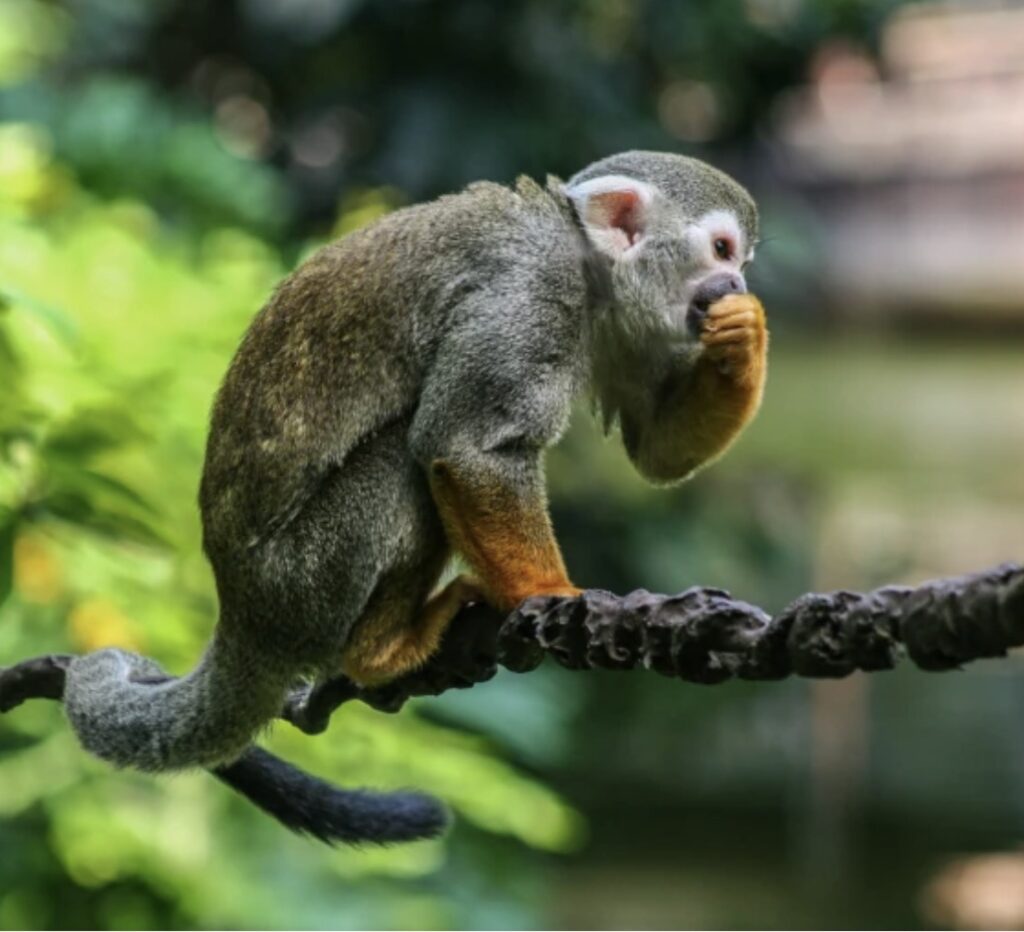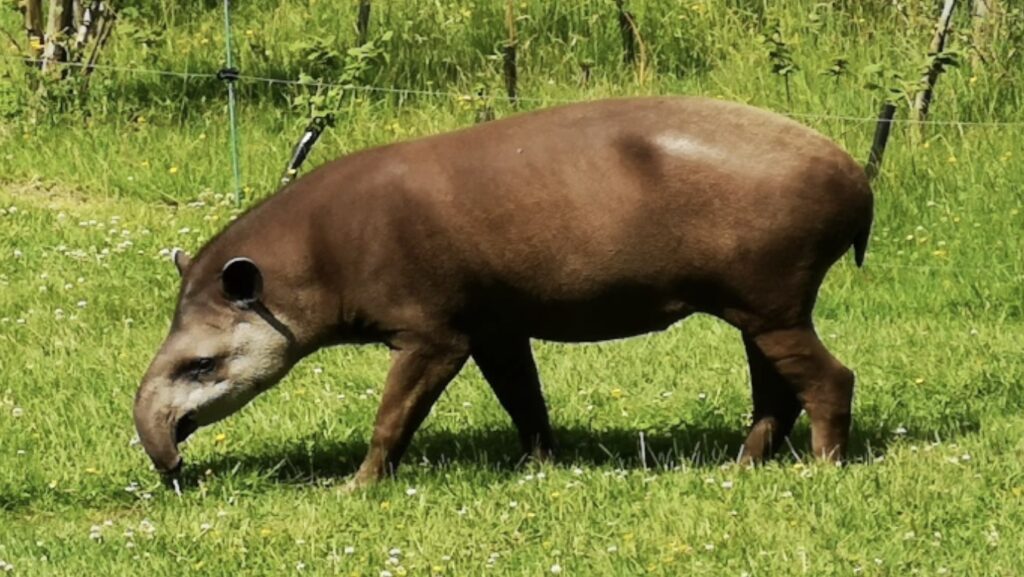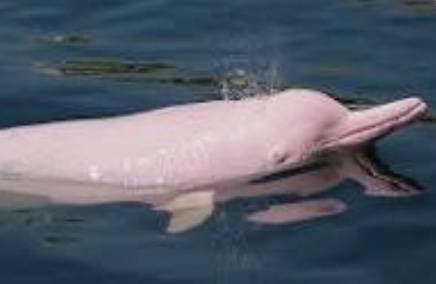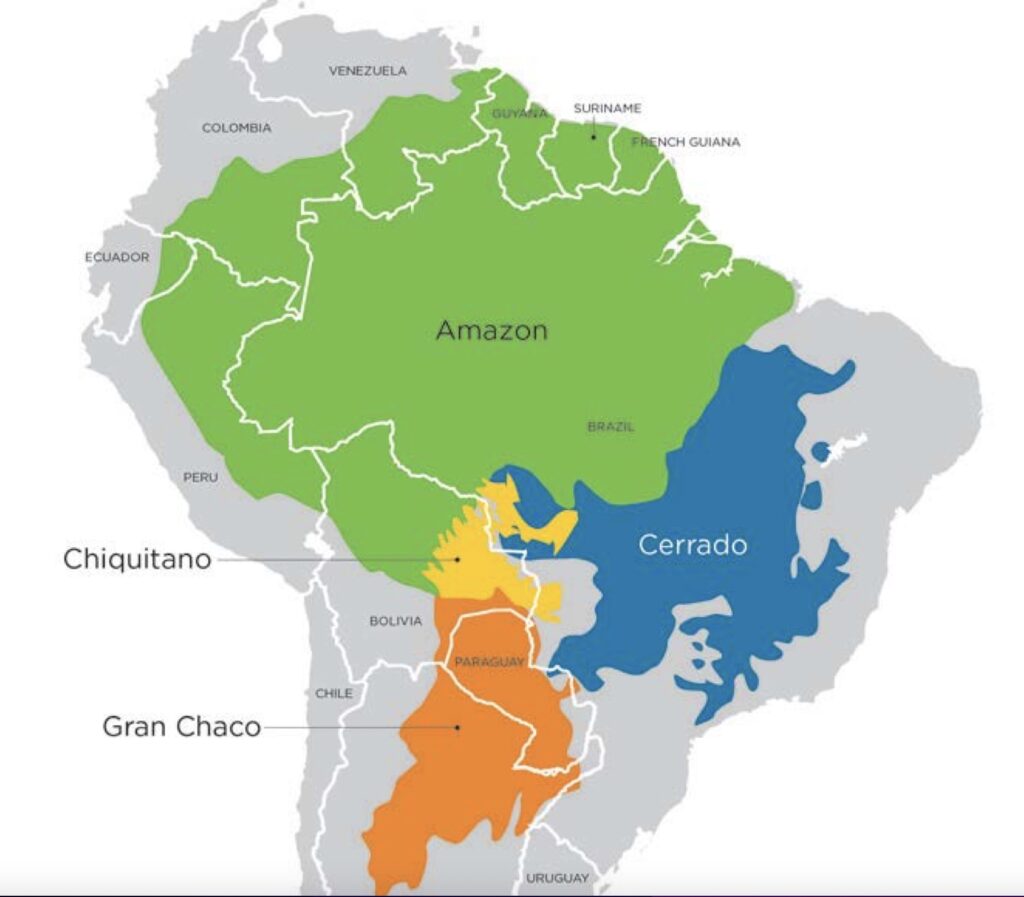Leticia James, New York’s Attorney General filed suit in March of 2024 against JBS USA, the subsidiary of the JBS, the world’s largest producer of beef products alleging that the company misled the public about its environmental impacts including deforestation of the Amazon rainforest by its meat suppliers who are expanding pasture of cattle ranches at the expense of forests. The lawsuit claims that JBS USA has continuously made false public statements about the sustainability of its beef products in order to increase demand from consumers who are today more conscious of a company’s impact on the environment.

James said that more than two-thirds of American adults are willing to pay more for sustainable products. JBS USA claimed that it will achieve net zero greenhouse gas emissions by 2040 even though internal company documents revealed that claim was not only false, but it also showed that JBS actually planned on increasing production and expand its environmental footprint for products of beef, pigs and poultry. JBS took out a full-page ad in the New York Times in 2021 that featured the false net zero claim. In 2023 at Climate Week the JBS CEO told an audience in NYC that the company would achieve net zero by 2040. Attorney General James stated that the JBS greenhouse gas emissions estimates have not even considered the enormous levels of emissions from deforestation in the Amazon by its meat suppliers.
James explained that of all major food commodities, beef production emits the most greenhouse gases and animal agriculture accounts for a staggering 14.5 % of annual global greenhouse emissions.
Amazon Deforestation from Cattle Ranches
Glenn Hurowitz, CEO of Mighty Earth, said JBS has driven more than 2.4 million acres of Amazon deforestation, has poured record methane pollution into the atmosphere and has a total climate footprint estimated to exceed the entire country of Spain.
According to a 2004 World Bank paper and a 2009 Greenpeace report, cattle ranching in the Brazilian Amazon, that supplies beef for the international beef and leather trades, has caused 80% of the deforestation of the Amazon. Beef production is the largest driver of global deforestation.
Soybeans are also grown on large farms in the Amazon in areas that have been deforested and is exported as feed for livestock in the US and Europe.
Monga Bay, the environmental group that monitors global deforestation, reported that the Amazon has three times more cattle than humans, 25 million humans and 85 million head of cattle and each year 12 million cattle are slaughtered for hides and meat.
Brazil produces 10 million metric tons of beef, representing 16.6 % of world production, that is exceeded only by the Unites States that produces 12.4 million metric tons of beef, 20% of world production.
Amnesty International reported that JBS bought cattle for slaughter that were illegally raised on Amazon’s protected forest reserves and on indigenous land. It found that the company commits cattle laundering where the cattle are moved from preserves where they are illegally raised, to land that has not been illegally deforested and then taken to the slaughterhouses.
In 2021 the US Dept. of Agriculture, (USDA), introduced a verification program that allows beef producers to label their product low carbon, if it meets certain environmentally conscious guidelines. The USDA determines if a product such as beef is entitled to a climate friendly certification, through a process that uses third party companies hired by USDA. If the measurement of climate damaging emissions of a producer is 10% less than the industry benchmark, the producer is allowed to place a climate friendly label on its product or use similar language in marketing. A big problem with the program is that it relies upon an honor system where the beef producers provide their own calculations, an obvious conflict of interest. Another obvious problem with labeling a product such as beef as climate friendly is that it only uses the comparable carbon emission output of the company, compared to other industry producers. It does not use other critical measures of the effect of the producers’ impact on the environment such as deforestation, how much water is used to produce beef (a single 4oz. serving of beef used 463 gallons of water), how much waste from livestock is being discharged into the environment, how much land is required to produce the product, to the exclusion of other land uses such as leaving it in a natural state where animal and plant species, biodiversity can thrive. The New York Attorney General asserts that the JBS’s false claims of being an environmentally friendly beef supplier by purchasing beef from ranches that it says minimizes environmental impacts, including deforestation, are violations of laws of the State of New York.
Demand for beef worldwide has skyrocketed. It has grown five fold since the nineteen sixties. The countries with largest meat consumers are:
- The US: 124 kilos consumed annually per person.
- Australia: 122 kilos.
- Argentina: 109 kilos.
- New Zealand: 101 kilos.
- Spain: 100 kilos
The Amazon Forest is the largest tropical forest in the world and has been called the lungs of the planet for the amount of oxygen it provides through photosynthesis, but most importantly it stores vast amounts of harmful carbon dioxide in its trees’ roots and soil. When the forest is cleared and burned for expansion of cattle ranches, enormous amounts of CO2 are released into the atmosphere, adding to the harmful greenhouse effect that is heating the planet.
Brazil has 65% pf the world’s rainforests. The World Wildlife Fund reported that the Amazon is the most threatened forest in the world.

One-third of primary forests loss in the world in 2019 took place in Brazil. A primary forest is one that is mature and has existed for many decades without human intervention. They are important for their rich biodiversity as the flora and fauna that thrives in a primary tropical forest cannot live in another ecosystem. Biologist, E.O. Wilson, famously said there are so many thousands of species of plants and animals in rainforests that destroying a rainforest for economic gain is like burning a Rembrandt painting to heat a meal.
The International Union for Conservation of Nature (IUCN) publishes the Red List of extinct endangered and threatened species. It found that the biggest cause of loss of species is destruction of physical habitat. Species in the Amazon that are endangered includes the giant otter, the tiny golden tamarind monkey, the white cheeked spider monkey, the jaguar, South American tapir and the pink Amazon river dolphin.

The Amazon has been deforested 17%, an area exceeding the combined land areas of Greece, Italy and Spain. The biggest driver of deforestation is the expansion of cattle ranches. Scientists predict that the Amazon is approaching a dangerous tipping point, where if deforestation increases from the present 17% to between 20% and 25% of the forest, its hydrology where the trees emit water vapor into the atmosphere, a process known as evapotranspiration. will be severely compromised. If this water cycle is interrupted on such a large scale by deforestation, the tropical forests will be converted into dry savannahs.
The Amazon provides the rainfall and feeds the river systems across the South American continent that supplies the fresh water for its many farms and cities. The Amazon influences rainfall way beyond its South American borders, even to the North American continent’s Pacific Northwest. It is home to about one-third of the world’s known terrestrial plants, animals, and insects and contains 20% of all the globe’s freshwater. The Amazon is the planet’s largest tropical habitat, bigger than the contiguous forty-eight US states, and exceeds the size of the tropical forests in Asia, and the Congo in Africa. The Amazon is shared by eight South American countries with the largest portion, 66%, in Brazil
Cattle ranches that clear Amazon forests for pastureland for cattle grazing to feed the rapidly expanding international market for beef, led by the biggest purveyor of beef products, JBS, are the biggest threat to the Amazon’s survival as the most important tropical forest in the world
The Cerrado a Large Natural Area in Brazil is Also Being Deforested by Expanding Cattle Ranches, Led by Demands for Beef From JBS
Besides the Amazon, another large area of Brazil known as the Cerrado is one of the largest natural biomes of the world and is now also subject to destruction of its vast areas by JBS, other beef product companies and soy farms that provide animal feed. The Cerrado is relatively unknown outside of South America, especially compared to the celebrated Amazon. But the Cerrado is enormous and is equivalent in size to the combined territory of England, France, Germany, and Italy and is the second largest biome in South America after the Amazon.

The Cerrado is located on the southeast border of the Amazon rainforest and covers 20% of Brazil and extends slightly into N.E. Paraguay and eastern Bolivia. It has a mixed landscape of woodlands, savannahs, and forests areas, some with a dry climate and others with a wet climate. Huge river systems flow through the Cerrado, the Amazon, Parana, Paraguay and San Francisco rivers. The Cerrado has a very high level of biodiversity with 5% of all species on Earth. The Cerrado is home to 850 bird species, 30 of which are endemic, found nowhere else in the world. The Cerrado is where the giant anteater and giant armadillo, the Brazilian tapir, are found. It is also home to pampas deer and the jaguar. There are 800 species of freshwater fish in the Cerrado representing 27% of the freshwater fish in South America. There are 262 species of reptiles. It has 200 species of amphibians, the most endangered animals in the world due to rapid disappearance of the planet’s wetlands.

The Cerrado is also a vital land mass that sequesters vast amounts of carbon dioxide in its deep root systems, 13.7 billion tons of carbon dioxide, equivalent to China’s 2020 annual carbon emissions.
The Cerrado is responsible for 12 % of global soybean production and 10% of global beef production.
A recent Global Witness report revealed that the three largest meat packing companies, JBS, Marfrig and Minerva are linked to deforestation in the Cerrado, at a level five times higher than in the Amazon. Thirty-six percent of beef in the Cerrado are raised on deforested land compared to 12% in the Amazon.
Only 11% of the Cerrado’s original natural land has legal protections from conversion to farms and ranches. The Cerrado is mostly privately owned. Today only 46% of its original natural land area remains and is facing great pressure.
As there is increased scrutiny over Amazon deforestation, many beef cattle operators are moving into the Cerrado where there is less protection of forests and less international scrutiny.
Of the three big meat packing companies buying beef in the Cerrado, JBS was linked to 69% of the deforestation there.
Attorney General James Legal Demands Against JBS
In the lawsuit against JBS, New York Attorney General James has asked the court to order JBS to cease its false advertising campaign that it will achieve Net Zero by 2040, and to order an independent audit of the company’s compliance with New York’s consumer protection laws. The lawsuit also seeks the disgorgement of the company’s ill-gotten gains from misleading the public about its environmental business practices and the imposition of penalties of $5,000 per violation of the consumer protection laws.

“Consumers are ready to support companies taking strong climate action, but they want assurance that climate claims are real, not greenwashed,” said Ben Lilliston, Director of Climate Strategies at the Institute for Agriculture and Trade Policy. As the largest meat company in the world, with a significant climate footprint, JBS has a responsibility to be fully transparent about its emissions, reduction strategies, and outcomes. The New York Attorney General’s action today not only holds JBS accountable for its unsubstantiated net-zero claim, but also sends a strong signal to other companies that empty promises do not pass for climate action.
“We applaud Attorney General James and her team for cracking down on deceptive greenwashing practices that mislead consumers and, specifically, for holding JBS accountable,” said Monique Mikhail, Campaigns Director, Agriculture & Climate Finance at Friends of the Earth U.S. “JBS is one of the top global companies contributing to climate change and has proven time and again it can’t be trusted to self-police. Consumers want and need real action on climate. Corporations should and must be held responsible when they mislead the public about their harmful impacts.”
